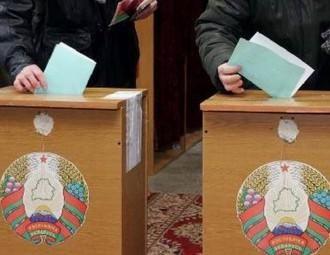Aliaksei Janukevich: Potential consolidation can restore faith in Belarusan democracy

The leader of the Belarusan Popular Front believes that the intention to hold a “people’s referendum” is aimed at securing changes in people's minds and the country's political system.
The only way for pro-democratic forces to come to power in Belarus is to receive as much support from the public as possible, Janukevich told at a meeting of its Council in Minsk on May 25. "Hoping that the country's isolation will lead to disturbances that will force the authorities to make changes is a mistake," he said, adding that economic crises normally prompted Belarusans to emigrate rather than take part in street protests, reports BelaPAN.
The "people's referendum" idea "at least gives an answer how we can influence the situation through popular support," he said. "People should know that there's a force that thinks about them rather than about its own problems that seem abstract to the majority. Each person signing a petition in support of the referendum may mean the voter's switch from the position of neutrality to support for forces that want changes”, - Janukevich claims.
The politician described opposition forces' infighting as counterproductive. "The opposition is now divided, which has a bad impact on its strength both inside Belarus and abroad. Even those who are ready to support the opposition cannot always say that one should give ear to its opinion," he said.
According to Janukevich, it is impossible for all opposition forces to unite at present. "But we can show that there are organizations that are ready to reach agreement. This can restore faith in Belarusan democracy, our partners' faith in us," he added.
Let us recall that recently the “Tell the Truth!” movement, the Movement for Freedom and the Belarusan Popular Front announced that they had decided on long-term strategic partnership and would cooperate during the next local, presidential and parliamentary elections at the very least and hold the people’s referendum. They said that the referendum questions would be formulated by the following local elections, which should be held no later than March 2014. The collection of signatures for holding the referendum would begin during the local elections, and the referendum issues would be reflected in the election platforms of the three organizations’ candidates.
-
03.01
-
07.10
-
22.09
-
17.08
-
12.08
-
30.09








































